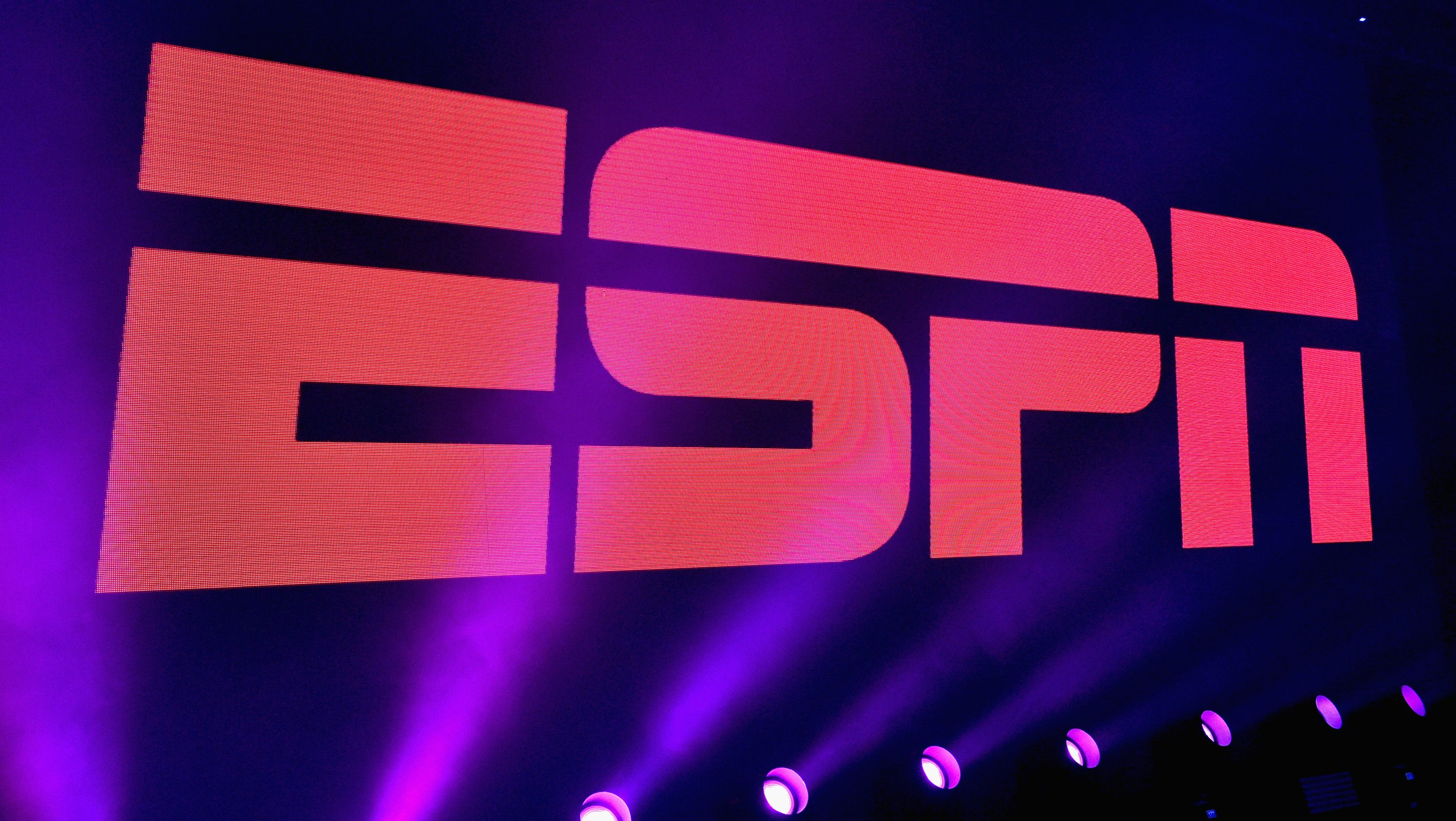Exploring ESPN's Influence: Where Sports Voices Shape The Narrative
ESPN, it's fair to say, has become a cornerstone of sports culture for so many people around the world. From the thrilling live games to the deep discussions about player legacies, this media giant really helps shape how we experience athletic contests. You might wonder, too it's almost, how do individual voices and experts contribute to such a massive, ever-present platform? It's a big operation, after all.
For decades, ESPN has been bringing sports into our homes, and it's quite a journey they've been on. Back in 1983, for instance, a salesperson named George Bodenheimer was out there, actually, talking to sports fans in a stadium. He was trying to get them to pay just a few cents a month for ESPN's content, and what's interesting is that, apparently, people weren't really pushing back against that idea. That kind of willingness to embrace sports content, that's what has helped ESPN grow into what it is today, a place where countless programs bring different angles and insights to the forefront.
When we think about the many personalities and experts who contribute to ESPN's wide array of content, it's clear they play a very important role. They help us understand the game, get excited about the rivalries, and, in a way, feel closer to the action. So, when a name like "Rutledge" comes up, it makes you consider the kind of impact an individual can have within such a vast and influential sports media landscape. It's about how these figures, whatever their specific roles, weave into the larger story ESPN tells every single day.
Table of Contents
- ESPN: A Powerhouse in Sports Media
- Crafting the Narrative: ESPN's Diverse Programming and Its Personalities
- ESPN's Digital Frontier: Streaming and Fan Engagement
- Common Questions About ESPN
- Staying Connected with the World of Sports
ESPN: A Powerhouse in Sports Media
ESPN, as a media entity, has a pretty deep history, and it's really quite something how it has grown. It started as a cable television network, basically, focusing entirely on sports programming. Over the years, it has expanded far beyond that, becoming a central hub for sports enthusiasts across many different platforms. You know, it's more than just a channel now; it's a whole experience for fans who want to keep up with their favorite teams and athletes.
The Roots and Reach of a Sports Giant
Thinking back to that 1983 moment with George Bodenheimer, it's clear that ESPN was built on a simple yet powerful idea: that people would pay for good sports content. And, frankly, they were right. From those early days, the network has blossomed into a massive presence, covering a truly incredible range of athletic competitions. We're talking about live coverage of all sorts of sporting events, giving fans that direct connection to the action as it happens. It's a vast operation, reaching viewers who are very passionate about sports, and it provides a steady stream of what they crave.
The reach of ESPN is, in some respects, quite global, and its influence on how sports stories are told is undeniable. It's a place where you can find out about a huge variety of sports, not just the major ones. This broad coverage means that whether you follow the big leagues or something a little more niche, ESPN probably has something for you. It's almost like a constant companion for many sports fans, always there with the latest updates and discussions. The way they bring these stories to life, too, is a big part of why people keep coming back.
The Backbone of Insight: Sports Data and Analytics
One of the less visible, but very important, aspects of ESPN's operation is its deep reliance on, and access to, extensive sports data. This isn't just about showing scores; it's about providing the detailed information that fuels analysis, predictions, and even fantasy sports. For instance, there are providers like Enetpulse that can offer a huge amount of sports data, covering over 45 different sports and more than 600 leagues from around the world. This kind of data is, basically, the lifeblood for places like ESPN, Yahoo, and FanDuel, helping them deliver accurate statistics and insights to their audiences.
Having access to such comprehensive data means that ESPN can really dig deep into the numbers behind the games. This allows their commentators and analysts to offer well-informed opinions and break down plays with a level of detail that would be impossible otherwise. It's not just about who won or lost; it's about understanding *how* and *why*. This statistical foundation is, frankly, what gives so much of ESPN's content its credibility and depth, making it a trusted source for fans who want more than just surface-level information. It's the kind of thing that, arguably, sets them apart.
Crafting the Narrative: ESPN's Diverse Programming and Its Personalities
ESPN isn't just one big show; it's a collection of countless programs, each with its own style and focus. This variety is, you know, a big part of what makes it so appealing to so many different kinds of sports fans. Each program, in a way, tells a different part of the sports story, whether it's breaking news, deep analysis, or just a fun look at the lighter side of athletics. This approach means there's always something new to watch, and a different perspective to consider, which is pretty cool.
A Look at the Shows and the Voices
When you tune into ESPN, you'll notice that many shows are, like, completely independent in their production. Take, for example, the NBA coverage: you have Stephen A. Smith's "First Take," Malika Andrews' "NBA Today," and Mike Greenberg's "Get Up." These are all very distinct programs, with their own production teams and, importantly, their own unique sets of guests and commentators. This setup allows for a wide range of voices and viewpoints to be heard, which, to be honest, keeps things fresh and engaging for viewers.
It's within this rich tapestry of programming that individual personalities truly get to shine. While we don't have specific details on a figure named "Rutledge" from our source, it's clear that ESPN values its experts and commentators. They are the ones who bring the data to life, offer the hot takes, and help fans make sense of the fast-paced world of sports. These individuals, whoever they might be, become familiar faces and voices, and they play a big part in shaping the daily conversations around sports. Their insights, their passion, and their unique ways of explaining things are, in fact, what draw many people in.
The Impact of Rankings and Expert Predictions
ESPN also has a knack for sparking discussion with its various rankings and predictions, and these often get people talking. Just recently, for instance, they released their latest NBA historical top ten, which, you know, always gets fans debating. Jordan is number one, LeBron is number two, and then you have Kobe at nine, Curry at thirteen, and Durant at fourteen. These kinds of lists, very naturally, generate a lot of conversation among fans, and they're a big part of how ESPN engages its audience beyond just live games.
It's not just historical rankings, either. ESPN experts are also putting out lists for the future, like their 2025 NBA draft predictions, with Cooper Flagg high up there. They also have their 2024-25 season top 20 wingers in soccer, with Salah, Yamal, and Raphinha leading the way. These predictions and rankings are, pretty much, a constant feature, offering fans a glimpse into what the experts are thinking and giving them something to chew on. This sort of content, arguably, helps fans feel more connected to the sport, and it gives them a reason to keep coming back for updates and new perspectives. Learn more about ESPN's expert analysis on our site, and link to this page for more insights into sports statistics.
ESPN's Digital Frontier: Streaming and Fan Engagement
Beyond its traditional television channels, ESPN has really embraced the digital world, making it easier than ever for fans to access sports content. This means you can visit espn.com for live scores, video highlights, and all the latest sports news, which is very convenient. It's a comprehensive online hub that complements their broadcast offerings, ensuring fans don't miss a beat, no matter where they are or what device they're using. This digital presence is, like, absolutely key in today's media landscape.
Then there's ESPN+, which is their streaming service, and it's quite a big deal for fans looking for exclusive content. You can stream exclusive games from UFC, baseball, college basketball, soccer, golf, and more. Plus, it's where you can find ESPN Originals and watch the latest game replays and highlights. It's available for a monthly fee of $11.99 or an annual subscription of $119.99, offering a lot of sports for a pretty fair price. This platform, naturally, has become a go-to for many who want to deepen their sports viewing experience.
Fantasy sports are another huge part of ESPN's digital engagement strategy. You can play fantasy baseball, fantasy football, and college pick'em directly through ESPN's platforms. This interactive element allows fans to not just watch the games but to participate in them in a different way, which is really cool. It ties into the live scores for every MLB, NFL, NBA, and NCAA game, providing box scores, video highlights, and play breakdowns. This integration of content and interactive games is, honestly, a smart way to keep fans deeply involved and coming back for more, giving them a reason to be, basically, constantly engaged.
Common Questions About ESPN
People often have questions about how ESPN operates and what it offers. Here are a few common ones, kind of like what you might find in a "People Also Ask" section:
What kind of sports data does ESPN use?
ESPN relies on a lot of sports data, often provided by specialized services like Enetpulse. This data covers a huge range of sports, over 45 different ones, and more than 600 leagues globally. It helps power their statistics, analysis, and even the data they provide to other major sports entertainment companies like Yahoo and FanDuel. It's, pretty much, the backbone of their factual content.
How does ESPN provide live sports coverage?
ESPN offers live sports coverage through various channels, including its traditional cable network and its streaming service, ESPN+. You can watch live games from many different sports, including major leagues like MLB, NFL, and NBA, as well as college sports and exclusive events like UFC. Their website, espn.com, also provides live scores and highlights, so you can keep up with the action in real time, which is very handy.
What types of programs does ESPN have besides live games?
ESPN has a very wide array of programs beyond just live game broadcasts. They feature analytical shows like "First Take," daily news and discussion programs such as "NBA Today" and "Get Up," and various shows that provide expert opinions, rankings, and predictions for upcoming seasons or drafts. They also have ESPN Originals on their streaming service, which are exclusive documentaries and series. There's, arguably, always something on, catering to different interests.
Staying Connected with the World of Sports
ESPN continues to be a central force in the sports world, constantly bringing us the latest news, thrilling live events, and thoughtful discussions. From its historical roots to its current digital innovations, it truly aims to keep fans engaged and informed. So, whether you're checking the latest scores, catching an exclusive game on ESPN+, or listening to expert analysis, you're, essentially, tapping into a vast network that helps shape how we all experience the games we love. It's a very dynamic space, and it's always evolving, which is pretty exciting for any sports fan.

Espn - zenluda

ESPN Live Stream: How to Watch Without Cable in 2017 | Heavy.com

Download ESPN Logo On Black Wallpaper | Wallpapers.com